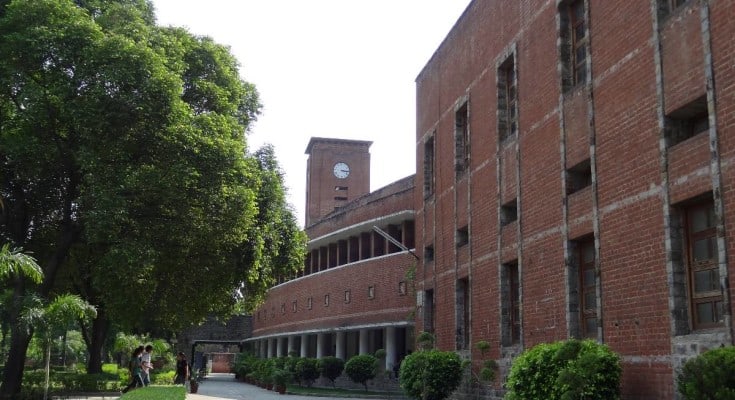The machinery of education evolving and growing with the dynamic forces of time is evident. With the rollout of the Goods and Services Tax (GST) marking the most significant tax reform in the country since Independence, the implications of ‘one country, one tax’ was bound to permeate to the amassed literature of the textbooks. The University of Delhi’s Academic Council has announced that the historic unifying tax has been approved to be a part of the syllabus for Commerce students. The same has been recommended to the varsity’s Executive Council.
GST and the students
Considering the economic system has been practically refurbished, the council feels the inclusion of GST in the curriculums of B.A. Programme, B.Com (Programme), and B.Com (Hons.) is necessary for the current set of students to comprehend its totality. An air of ambivalence surrounds the introduction of the tax, as uncertainty shrouds over how it will influence various products and services. The new section on GST will be included from this academic session onwards.
The nitty-gritties of the tax will be taught in the third and fifth semesters to B.Com (Hons.) students and fifth and sixth semester students will have to study a paper on GST and Custom Law in B.Com (Prog.), while the course will be taught to B.A. (Prog.) students in the third and fourth semester, depending on the approval of the executive council.
The course curriculum will comprise of the constitutional framework of indirect taxes before GST, which shall focus on the taxation policies of the union and state governments, like the Value Added Tax. They will also be taught the drawbacks of the indirect taxes which palled over the country’s economy before GST. Further, they will be acclimatised to the structure of GST, the GST council, state compensation mechanism, registration, amongst other topics. The curriculum is also expected to include levy and collection of GST, which will cover taxable events like supply of goods and services, places of supply within state, interstate, import and export, time of supply, valuation rules, taxability of reimbursement of expenses, and exemption from GST.
The decision has been welcomed by the faculty members of the varsity’s colleges, who emphasise on the importance of the students learning the intricacies of the new economic structure. “So far, the Goods and Services Tax was not included in the curriculum. Going by the status quo, it is important that students understand the tax well. We are awaiting a formal notification from the University and will include it in the curriculum for this academic year”, said Reena Chadha, Professor at Shri Ram College of Commerce. Rajesh Jha, Professor at Rajdhani College and an Academic Council member, mentions that the Executive Council is most likely to give a nod to the academic inclusion.
GST: The unifying economic umbrella
Heralded as the mechanism to bring about ‘fiscal liberation’, the GST council has devised a system which seeks to subsume the complex net of an array of taxes previously levied. The system was rolled out on the midnight of June 30th and July 1st in a grand ceremony at the Central Hall, and witnessed the likes of the President, Prime Minister, Finance Minister, members of both the houses, and other eminent personalities. The journey to implement GST can be tracked back to ten years ago, ever since the government was aiming to bring about economic reforms. The tax will supposedly lead to widening the country’s tax base and enhancing compliance while also freeing up internal trade and effecting a direct growth in the country’s GDP. However, there stand various regulatory challenges in its path to ensure that the tax brings comfort to the country.
Dr. Bhibhu Pratap Sahu, Assistant Professor at Sri Guru Tegh Bahadur Khalsa College, highlights the positive impact of the newly implemented tax. He says, “Tax has now been simplified for our country with GST. Revenue generated from GST will be generated in a manner that will benefit India. Economists are already expecting the tax revenue to reach 2 trillion from 1 billion so students should be apprised with the times they will have to work in.”
With inputs from India Today
Feature Image Credits: Media India Group
Saumya Kalia
[email protected]








